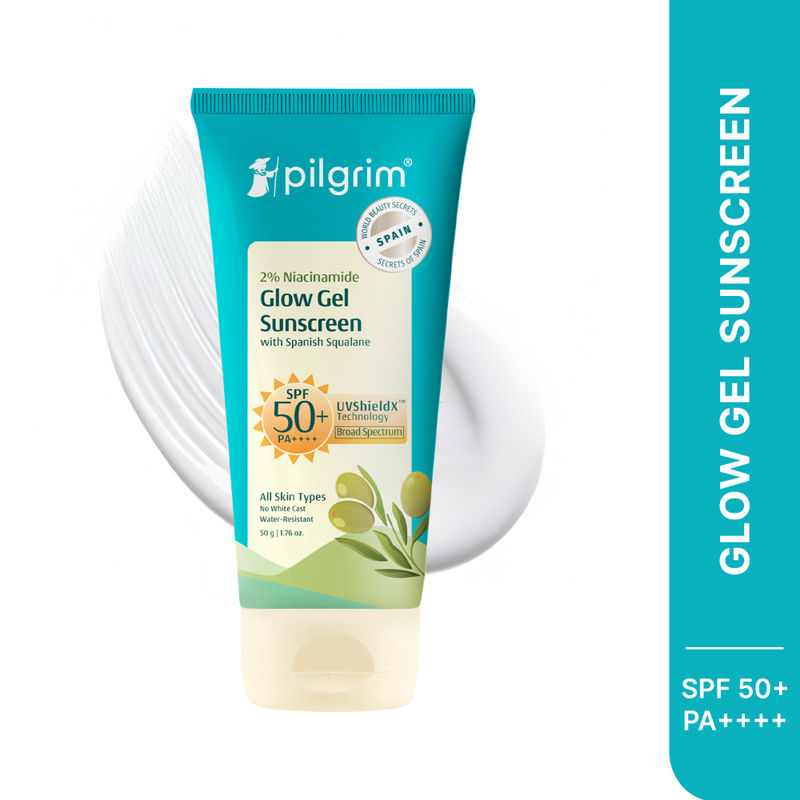
Highlights
WHAT IS IT?
Face Sunscreen with 2% Niacinamide
FEATURES
Protects skin from sun damage, reveals radiant glow, SPF 50 PA+++ protection, UVA/UVB/blue light protection, prevents tanning, hydrates, nourishes, fades hyperpigmentation, reduces fine lines, lightweight and non-greasy, FDA approved, dermatologically tested, vegan and cruelty-free
BEST FOR
sensitive
CHECKS
Paraben-free, Sulfate-free, Mineral oil-free, Toxic chemical-free
Who Is It For?
All Genders No Specific Age Range MentionedWhat Does It Help With?
Sun Damage Tanning Hyperpigmentation Fine Lines Blue Light ProtectionBudget
Affordable (under $30)How To Use
Which routine should it be used in?
Instructions:
Key Information










What Pilgrim Says
Product Description:
Fall in love with 2% Niacinamide Glow Sunscreen, a dual-action formula that protects your skin from sun damage and reveals a radiant glow. With SPF 50 and PA+++ protection, it prevents sun damage, tanning, and blue light effects. This light, non-greasy sunscreen enhances your glow, hydrates, nourishes, fades hyperpigmentation, and reduces the appearance of fine lines for naturally brighten skin.
About the Brand:
Ingredients Overview
Ingredients List
Aqua, Water, Octyl-Methoxycinnamate, Butyl-Methoxydibenzoylmethane, Bis-Ethylhexyloxyphenol-Methoxyphenyl-Triazine, 1,3-Butylene-Glycol, Diethylhexyl-Butamido-Triazone, Phospholipids, Ethylhexylglycerin, Glycereth-26, Undecane, Tridecane, Caprylic/Capric-Triglyceride, Niacinamide, Sodium-Polyacrylate, Glyceryl-Stearate, PEG-100-Stearate, Phenoxyethanol, Ethylhexylglycerin, PEG-40-Hydrogenated-Castor-Oil, Centella-Asiatica-Extract, Alpha-Arbutin, Xylitol, Glucose, Anhydroxylitol, Phoenix-Dactylifera-Extract, Allantoin, Disodium-Ethylenediaminetetraacetate, Water-(Aqua), Glycerin, Alcohol, Achyrocline-Satureioides-Flower-Extract, Plantago-Lanceolata-Leaf-Extract, Sodium-PCA, Fabiana-Imbricata-Leaf/Stem-Extract, Verbascum-Thapsus-Extract, Linseed-Oil/Palm-Oil-Aminopropanediol-Esters, 3-O-Ethyl-Ascorbic-Acid, Squalane
Key Ingredients
Niacinamide, Spanish Squalane, Alpha Arbutin
Ingredients Details
Alcohol
Allantoin
Alpha-arbutin
Anhydroxylitol



